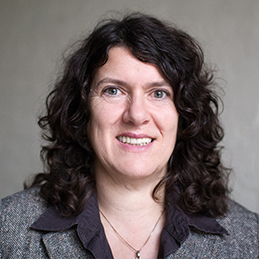
Oda Becker
Oda Becker (Physicist) is an independent self-employed scientific consultant for nuclear risks. She is born on July 7th, 1962, and studied physics and education science at the University of Hanover. From 2006 – 2011, Oda Becker had a professorship at the University of Applied Science and Arts, Hanover.
Since 1999, she has participated in several studies of nuclear power plants and storage facilities, among others, analysing the accident scenarios resulting from possible terror attacks. She has knowledge and experience in important aspects of nuclear technology and safety. Her clients include the Austrian Federal Government as well as several non-governmental organisations (NGOs). She has worked in several expert statements about the safety of NPPs in different countries on behalf of the Environment Agency Austria (for example: Dukovany NPP, Czech Republic; Paks NPP, Hungary; Hinkley Point, UK). Recent work includes studies of safety issues at the German and European NPPs (e.g. ageing).
Presentation: Study: Risk of lifetime extensions of old nuclear power plants - technical aspects

Bruno Chareyron
Bruno Chareyron is a French Engineer in energetic and nuclear physics with a Master in Particle Physics (1987). Since 1993 he is the director of the CRIIRAD laboratory. This French NGO CRIIRAD, which stands for Commission for Independent Research and Information about RADiation, was founded following Chernobyl disaster in 1986. In his work Chareyron dedicates to an independent radiation monitoring in the environment, to at least improve people’s protection against radiation. Also he is working on the impact of uranium mining on health and the environment. He conducted several international studies and has been involved also in supporting initiatives of citizens in Japan for the independent monitoring of the contamination triggered by Fukushima nuclear accident.
In 2016, Bruno Chareyron received the Nuclear-Free Future Award, category “Education” for “his unwavering commitment exposing nuclear industry disinformation and heightening public understanding in France and around the world”. At the NEC2019 he will give report on the current situation in France, regarding safety deficiencies, control of the given information and its transparency in context to the lifetime extension of nuclear reactors.
Presentation: Situation in individual states (France)

Ulla Klötzer
Ulla Klötzer of Finland is a former teacher and politician, and still peace and environmental activist. As the founder and chairwoman of the Finnish Women Against Nuclear Power, she has been persistently fighting the threat and folly of nuclear power plants for years and is media spokesperson, consultant, networker, organizer and initiator of international campaigns – in her decidedly pronuclear home country as well as at EU level.
Presentation: Situation in individual states (Finland)

József Kóbor
Dr. József Kóbor holds a PhD in radiation biology and radiation protection and is a physicist in the medical field of oncology and radiotherapy. He acts as radiation protection officer of the University Hospital in Pécs according to the criteria of the Hungarian Atomic Energy Agency (HAEA).
Kóbor is also a political scientist (BSc), a member of the City Council of Pécs and is currently running in Hungary on the European list of the Green Party. He also works as a member of the Green Circle (NGO in Pécs), Nuclear Transparency Watch and the BEACON research group as part of the European Joint Project on Radioactive Waste Disposal.Presentation: Situation in individual states (Hungary)
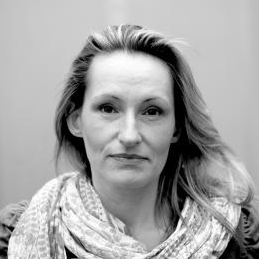
Patricia Lorenz
Patricia Lorenz has been working for the Austrian environmental organization
GLOBAL 2000 since 1993 and as well in Brussels for Friends of the Earth Europe
for almost two decades. The trained translator and interpreter is the author of
several relevant studies. Lorenz' many years of experience include, among other
things, dealing with the possibilities of participation in cross-border
procedures against construction and lifetime extensions of nuclear reactors.
Patricia Lorenz is involved in the ongoing negotiations on the introduction
of a mandatory EIA for lifetime extensions of nuclear power plants (PLEX) under
the Espoo Convention.
Presentation: Law and legal action: Possible steps against lifetime extensions

Kaspar Müller
The independent Swiss economist Kaspar Müller (1952) (www.kaspar-mueller.ch) dedicates his extensive work to the area of conflict between ethics and business, sustainability and the financial market, ecology and democracy. He is author of numerous studies, lecturer at various universities and technical colleges and chairman of the Advisory Council on Sustainability of the Basler Kantonalbank and Bank Cler. During his active career he was, among others, member of the Accounting Standards Committee Swiss GAAP FER, President of the Ethos Foundation and of the Board of Directors of Ethos Services SA, Geneva.
In 2007, he wrote the section "Analysis of Financial Consequences and Risks" for the report "Comparison among different decommissioning funds methodologies for nuclear installations" for submission to the European Commission. Since then he has dealt with the question of the financial value of nuclear power plants.
In his presentation, Müller will explain that nuclear power was never profitable and never will be, not even if their lifetimes are extended, on the contrary.
Presentation: Nuclear power - unprofitable from A to Z
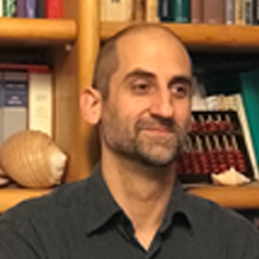
Nikolaus Müllner
Nikolaus Müller is Senior Scientist and Deputy Director of the Institute for Security and Risk Sciences ISR of the University of Natural Resources and Life Sciences Vienna BOKU. He is chairman of the International Nuclear Risk Assessment Group, INRAG. His fields of research include nuclear safety, nuclear licensing procedures, deterministic and probabilistic safety analysis, severe accidents, but also questions on renewable energy as well as general questions on modeling thermo-hydraulic systems.
After completing his studies in physics at the University of Vienna, he worked at the Technical University of Pisa, Nuclear Research Group San Piero a Grado, for ten years before moving to the ISR. In his role as Coordinator of the Licensing Division, he had scientific responsibility for e.g. developing the chapter "Accident and Transient Analysis" of the safety report of the nuclear power plant Atucha 2. He is a founding member of "Nuclear and Industrial Engineering s.r.l." N.I.N.E.
N. Müllner is the Austrian representative to the "Nuclear Safety Standards Committee" of the International Atomic Energy Agency IAEA 2013-2020 and adviser to the Austrian Ministry of Sustainability and Tourism, Nuclear Coordination, in the context of intergovernmental nuclear expert talks.
He is the author of numerous publications in journals, conference proceedings and specialist publications of the IAEA and OECD / NEA.
Presentation: Study: Risk of lifetime extensions of old nuclear power plants - technical aspects
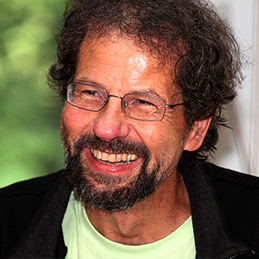
Wolfgang Renneberg
Wolfgang Renneberg studied physics and law. Since the late Eighties he was
engaged in leading functions of the nuclear safety departments of ministries in Germany
(Hamburg, Schleswig Holstein, Hesse).
From 1994 to 1999 he had been the executing head of the nuclear regulator in Hesse,
from 1999 to 2009 he had been the executing head of the German Nuclear Authoritiy within
the German Ministry of Environment and Nuclear Safety.
In 2013 after the Fukushima accident he had a leading role as adviser of political
responsibles and in informing the public about the accident and its consequences.
From 2012 to 2015 he worked as Universityprofessor at the Institute of Safety- and Risk
Sciences of the University for Natural Resources and Life Sciences in Vienna.
Since 2010 till now he has been director of the “Office for Nuclear Safety” (Büro für Atomsicherheit).
He had been member of WENRA (Western European Nuclear Association), member of ENSREG
(European Nuclear Safety Regulators Group), member and chair (2006) of INRA (lnternational
Nuclear Regulators Association) and is now member of NTW (Nuclear Transparency Watch) and
INRAG (International Nuclear Risk Assessment Group).
He is author of several studies and journal publications (German) on risks of nuclear
power plants and on national and international nuclear governance.
Presentation: Keynote - Study: Risk of lifetime extensions of old nuclear power plants - background & method
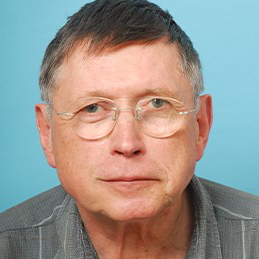
Leo Šešerko
Leo Šešerko holds a doctorate in philosophy and a professorship in Environmental Economics and Environmental Sociology at the Environmental College in Velenje, Slovenia. In his publications and lectures he deals with the question of eco-social responsibility. In 1990 he was Vice Prime Minister and Environment Minister of Slovenia's first democratically elected government. Šešerko continues to network as an environmental activist in international context.
Presentation: Situation in individual states (Slovenia)
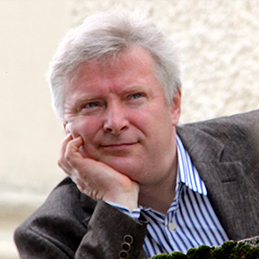
Dalibor Stráský
He has studied nuclear engineering at the Faculty of Nuclear and Physical Science
at the Czech Technical University in Prague, specialising in the field of theory and
technique of nuclear reactors.
After having finished his studies in 1985 he worked as a designer in Energoprojekt
Praha at the building site of the nuclear power plant in Dukovany. Consequently he
worked in this nuclear power plant as the operator of the secondary circle.
He has acquired his next post in the nuclear power plant in Temelin, within the
section of the preparation of production.
From the year 1990 until the year 1997 he worked as an advisor of energy
connected issues for non-governmental institutions. From the year 1998 until
2008 (2005 - 2008 externally) he works as an advisor of energy connected issues
to the Minister of the Environment.
Since 2011 Anti-Nuclear-Appointee of Upper Austria.



